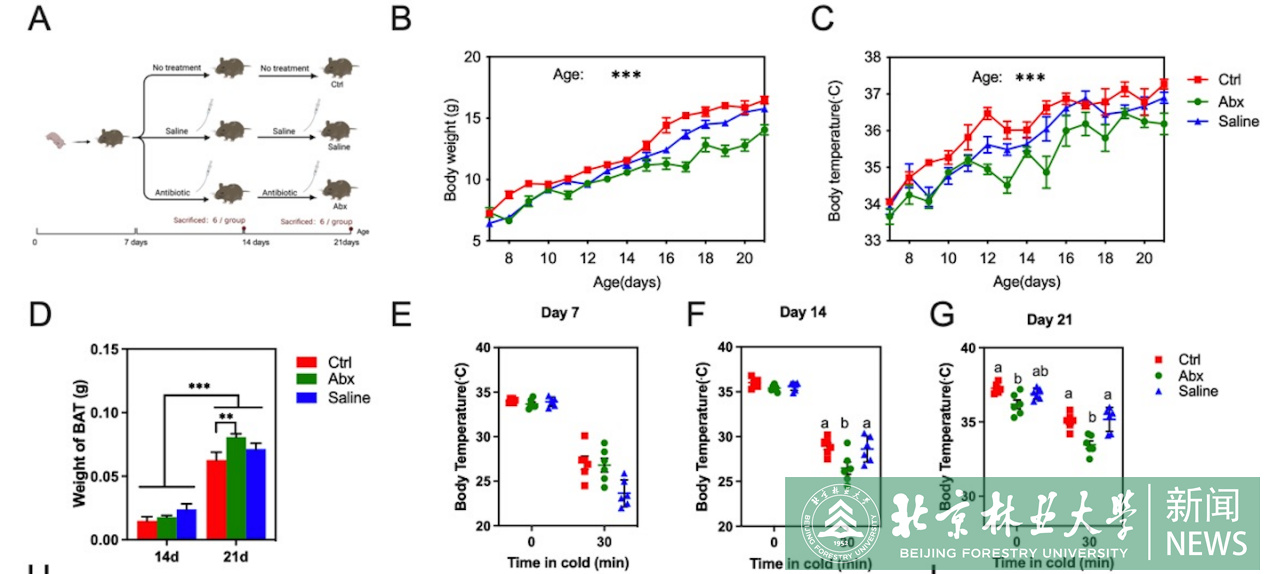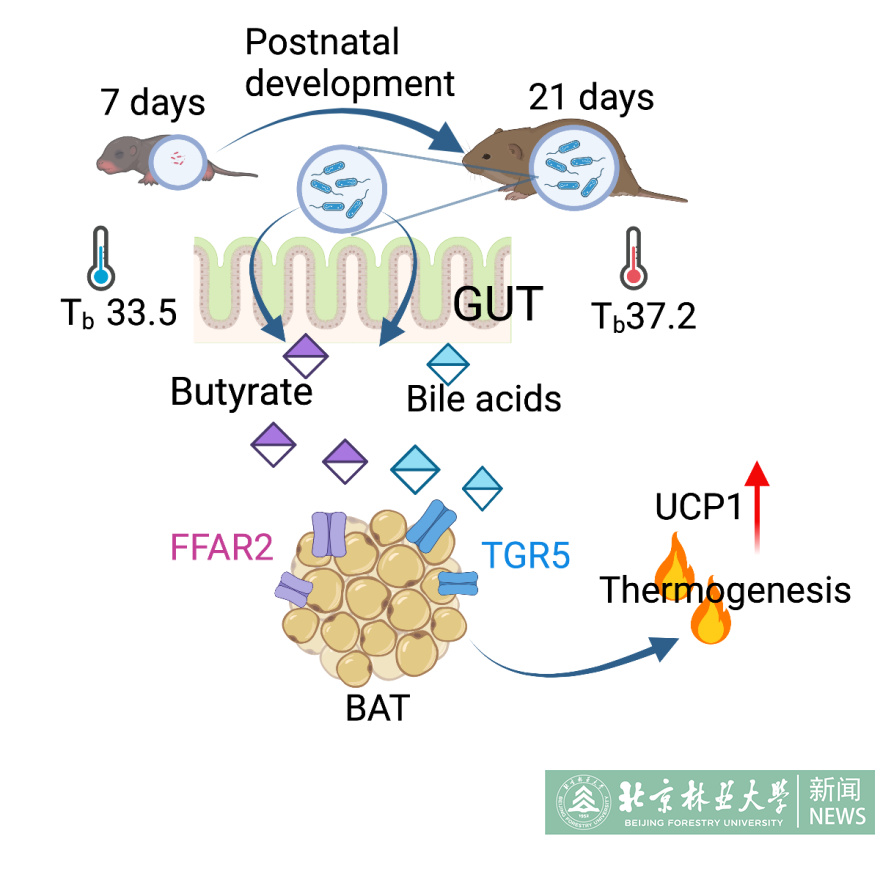Latest news
Temperature is an important factor affecting the growth and development of mammals. Homeothermal animals do not have the ability to produce heat independently after birth, and heat loss is the main factor threatening their survival. The Brandt’s vole (Lasiopodomys brandtii) mainly inhabits the grasslands of Inner Mongolia of China and Mongolia. It is a typical herbivorous species. Voles are born with bare skin, poor heat insulation, and low thermoregulation ability. Researchers before found that before the age of 17 days, vole pups could not maintain a constant body temperature under the condition of 23°C cold exposure. After the age of 17 days, thermoregulation of the pups increased, and body temperature could be maintained.

Homeothermy is crucial for mammals. Postnatal growth is the key period for young offspring to acquire gut microbiota. Although gut microbiota may affect mammal thermogenesis, the impact of developmental regulation of gut microbiota on the ability of young pups to produce heat remains unclear. Antibiotics were used to interfere with the establishment of gut microbiota during the development of Brandt’s voles, and their thermogenic development and regulatory pathways were determined. Deprivation of microbiota by antibiotics inhibits the development of thermogenesis in pups. Butyric acid and bile acid, as metabolites of gut microbiota, participated in the thermoregulation of pups. We propose that gut microbiota promote the development of thermoregulation through the butyric acid-free fatty acid receptor-2-uncoupling protein-1 or the deoxycholic acid-Takeda-G-protein-receptor-5-uncoupling protein-1 pathway in pups. These results show a relationship between gut microbiota and thermogenesis and expand the mechanism of postnatal development of thermogenesis in small mammals.
Current research indicates that Abxs cause a serious disturbance with the establishment of gut bacterial communities in pups, thereby affecting their postnatal development of thermoregulation. Specifically, gut microbiota promotes the development of thermoregulation in pups through its metabolites, butyric acid and DCA. To our knowledge, this study is the first to establish a relationship between the development of gut microbiota and the thermogenic development of wild animals. This research provides a new understanding of the postnatal development of the thermoregulation process in young pups and expands the theory of postnatal thermoregulation development of thermostatic animals. These findings also confirm the view that gut microbiota and the host coordinately develop. Future experiments should aim to unravel many of the interaction mechanisms behind these results.

The research entitled "Role of gut microbiota in the postnatal thermoregulation of Brandt’s voles" was published in Cell Reports on August, 2023. Associate professor Bo Tingbei from the School of Grassland Science, Beijing Forestry University, post Ph.D Tang Liqiu and Xu Xiaoming from Institute of Zoology Chinese Academy of Sciences are co-first authors of the paper, and Professor Wang Dehua from Shandong University is the correspondng author. This research was supported by the National Natural Science Foundation of China for Youth , the Young Elite Scientists Sponsorship Program by CAST and other programs.
Paper link: https://doi.org/10.1016/j.celrep.2023.113021










